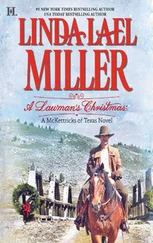He had another, even more intriguing puzzle to solve, and that was Lark Morgan, though there was no telling when she’d strike out for parts unknown.
Sam and the major sat waiting for him to announce his decision, though they probably already knew what it would be.
“I’ll see what I can do,” he said.
“Good,” John replied, with the air of a man completing important business. “I’ll swear you in as marshal, and Sam’s got a badge in his pocket. You just remember, the rangering part is between us.”
“I might need a posse, if I’m going after a bunch of train robbers,” Rowdy said. Whatever his private differences with his pa, he had no intention of rounding the old man up for a stretch in the prison down in Yuma, or even a hangman’s noose, but he’d put on a show until he knew what was what.
There was an off chance, of course, that Payton had been telling the truth when he claimed he’d had no part in robbing those trains. Should time and some investigation bear him out, Rowdy would find the real culprits and bring them in.
“If a posse is called for,” Sam said, handing Rowdy a star-shaped badge, “we’ll get one up.”
When the major produced a battered copy of the New Testament, Rowdy didn’t hesitate to lay a hand on it. He wasn’t a believer—at least, not the usual kind—but his mother had been, and that made the oath a solemn matter.
Fortunately, there was nothing in it about handcuffing his own pa, or any of his brothers, not specifically, anyhow. He swore to uphold the law, and he’d do that—up to a certain point.
After the swearing in, the major went off on some errand over at the Stone Creek Bank, while Sam, Rowdy and Pardner headed for the jailhouse, down at the far end of the street.
Would have made more sense to put the marshal’s office in the center of town, where the saloons were and trouble was most likely to break out. Rowdy figured folks wanted a lawman around, but at a little distance, too.
The jailhouse was about like the old one in Haven, before it burned. One cell, a potbelly stove with a coffeepot on top, somebody’s old table to serve as a desk.
It was the cabin out back that surprised Rowdy a little. It had three rooms, a good fireplace and a cookstove to rival the one in Mrs. Porter’s kitchen. The floors were hardwood and the windows were sound, with no cracks around them to let in the winter wind. The bed had a good feather mattress and plenty of blankets, and there was a sink with a working pump. An indoor toilet and a stationary bathtub with a copper hot water tank and a wood-burning boiler under it raised the place to an unexpected level of luxury.
“The last marshal had a wife,” Sam explained simply. “Come on. I’ll show you the barn.”
Rowdy grinned. “I’d probably feel more at home out there,” he said. Back in Haven he’d slept on a cell cot, when there were no prisoners, and with a certain accommodating widow when there were.
“Maybe you’ll take a wife,” Sam said, making for the back door.
“Not likely,” Rowdy replied.
Sam chuckled. “I thought the same way once,” he said. “Then I met up with Maddie Chancelor.”
4
LARK AWAKENED with a start, heart pounding, afraid to open her eyes. She was certain she would see Autry Whitman looming over her bed if she did.
The room was frigid, and the fine sweat that had broken out all over her body in the midst of her nightmare exacerbated the chill stinging the marrow of her bones. She forced herself to breathe slowly and deeply, and raised one eyelid, every muscle in her body tensed to roll off the side of the mattress and grab for something, anything, to use as a weapon.
Autry wasn’t there.
Tears of relief clogged her throat and burned on her cheeks.
Autry wasn’t there.
She sat up, fumbled with the globe of the painted glass lamp on her bedside table, struck a match to the wick. Shadows rimmed in faint moonlight receded and then dissolved. According to the little porcelain clock she’d brought with her from St. Louis, it was after three in the morning.
Inwardly Lark groaned. She wasn’t going back to sleep.
After summoning all her inner fortitude, she swung her legs over the side of the bed and stood. The wooden floor felt frosty under her bare feet, and, shivering, she thought with longing of the wood cookstove downstairs.
She would go down there, build up the fire, if it hadn’t gone out after Rowdy banked it for the night. Light another lamp and wait, as stalwartly as she could, for morning to come.
Lark grabbed up her wrapper—it was a thin silk, and therefore useless against the cold—and went out into the corridor, feeling her way along it in the gloom. She would have brought the lamp from her room, but it was heavy, and an heirloom Mrs. Porter prized. Breaking it might even be grounds for eviction, and Lark had nowhere to go.
She descended the back stairs as quietly as she could and gasped when she saw a man-shaped shadow over by the cookstove.
Autry?
Rowdy Rhodes stepped out of the darkness, moonlight from the window over the sink catching in his fair hair. He moved to the center of the room and lit the simple kerosene lantern on the table.
Lark laid a hand to her heart, which had seized like a broken gear in some machine, and silently commanded it to beat again.
“I’ve put some wood on the fire,” Rowdy said quietly, offering no apology for startling her. “Go on over and stand next to the stove.”
Lark dashed past him, huddled in the first reaching fingers of warmth, dancing a little, because the kitchen floor, like the one above stairs, was coated with a fine layer of frost.
Rowdy was fully clothed, right down to his boots.
“I th-thought you’d moved out,” Lark said. “Gone to live in the cottage behind the marshal’s office.” He’d told them about his new job at supper that evening, said he’d still be taking his evening meals at Mrs. Porter’s most nights.
He didn’t answer right away, but instead ducked into his quarters behind the kitchen and came out with a woolen blanket, which he draped around Lark’s shoulders. “I paid Mrs. Porter for a week’s lodging,” he said. “Since it wouldn’t be gentlemanly to ask for my two dollars back, I decided to stay on till I’d used it up.”
Pardner came, stretching and yawning, out of the back room. Nuzzled Lark’s right thigh with his nose and lay down close to the stove.
Rowdy dragged a chair over and eased Lark into it. Crouched to take her bare feet in his hands and chafe some warmth into them.
Lark knew she ought to pull away—it was unseemly to let a man touch her that way—but she couldn’t. It felt too good, and Rowdy’s callused fingers kindled a scary, blessed heat inside her, one she wouldn’t have wanted to explain to the school board.
“What are you doing up in the middle of the night?” Rowdy asked, leaving off the rubbing to tuck the blanket snugly beneath her feet. While he waited for Lark’s reply, he took a chunk of wood from the box, opened the stove door, and fed the growing blaze. Then he pulled the coffeepot over the heat.
“I sometimes have trouble sleeping,” Lark admitted, sounding a little choked. Her throat felt raw, and she wanted, for some unaccountable reason, to break down and weep. The man had done her a simple kindness, that was all. She was making far too much of it.
“Me, too,” Rowdy confessed, with good-natured resignation.
Heat began to surge audibly through the coffeepot. The stuff would be stout since the grounds had been steeping for hours, ever since supper.
Taking care not to make too much noise, Rowdy drew up another chair, placed it next to Lark’s.
“Makes a man wish for the south country,” he said. “It never gets this cold down around Phoenix and Tucson.”
Читать дальше












